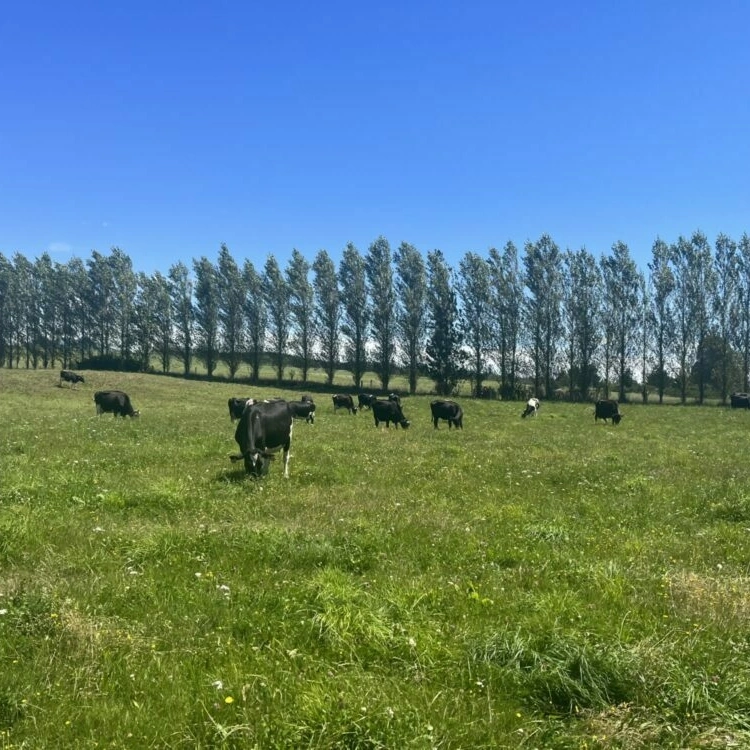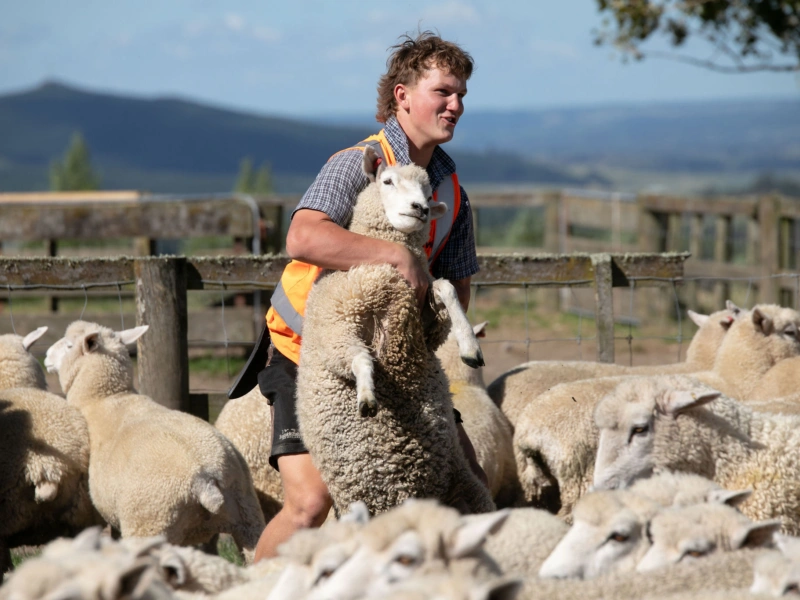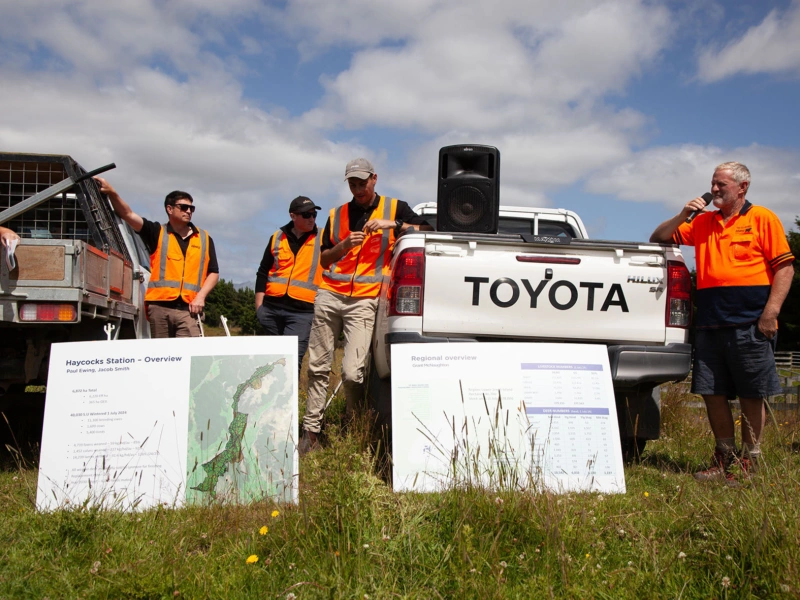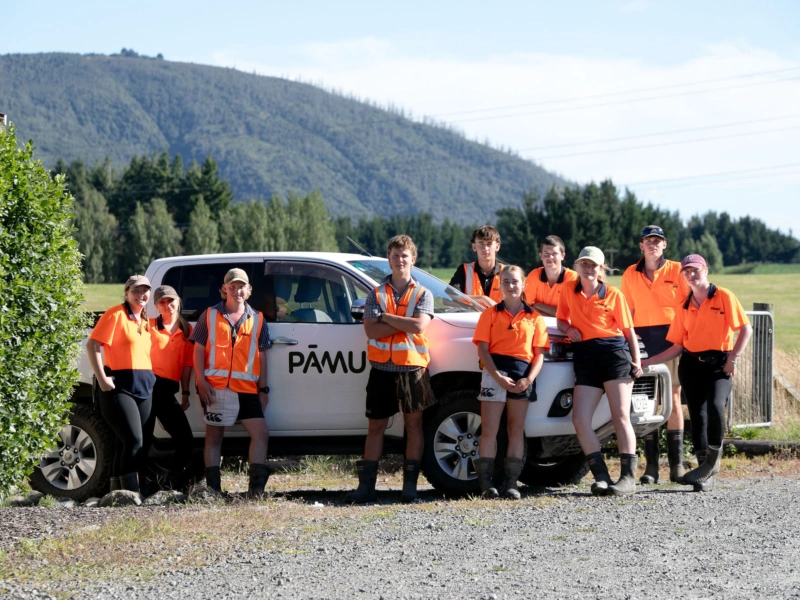Profitably farming — more sustainably
Since 2016 Pāmu has been investing in organic dairy farming. Pāmu operates with the belief that environmentally sound farming practices create the highest-quality natural products. Pāmu identified that a shift to organic milk supply had the potential to lower the environmental footprint, but the premiums for organic milk would mean no loss in commercial viability.
Today we have a total of 11 farms and three runoffs, based in Wairākei near Taupō, and Moutoa in the lower North Island. We have 6,430 cows on 4,190ha across these farms, making Pāmu the largest organic dairy farmer in Aotearoa New Zealand.
Why organics at Pāmu?
Pāmu started the first organic conversions on two farms in 2016: Earnslaw in the Central Plateau Pastoral Complex at Wairākei, and Tasman in the Manawatū Moutoa Complex. The aim was to pilot and learn from a farming system with a lower environmental footprint, that had equal profitability to conventional.
The objective was a sustainable business strategy where we would be de-risking the farm businesses through:
- Fewer cows — shorter milking times
- BCS focus — fewer animal health issues to treat
- BCS focus — improved reproductive performance
- Lower SCC — problem animals removed
- Longer grazing round length — increased buffer for adverse events
- Green cover — creating extra feed options and reducing runoff and loss of topsoil
- Reduced emissions and leaching
- Underpinned by a strong focus on people.
Management and performance
In organics you don’t have to throw everything in the bin. Some products are allowed with restrictions:
- Pain relief – some anti-inflammatories (such as Norflunix) are permitted with animal record, withholding, and paperwork requirements.
- Drench – a small selection of pour-on products are approved. These cannot be used as a preventative and must have written instructions from a vet. There are withholding rules and restrictions on how many times an animal can be treated per
year. They typically result in animals never being able to be sold as organic meat animals so we try to avoid needing it. - Minerals – most approved with proof of need and vet recommendation.
- Feed – only feed certified to the same markets as the farm.
- We use silage from the runoffs, and kibbled maize for young stock at Earnslaw.
- Cleaning products – key products for the shed are approved with protocols.
Our organic farms meet a wide range of certification standards which allows access to markets across the world, therefore allowing Fonterra to pursue high-value
partnerships.
Certification standards which we hold include:
- IFOAM/AQ Standard
- EU
- GB
- Switzerland
- Canada/COR
- Taiwan
- China
- Korea
- USDA
In February 2024 we held an open farm day at Earnslaw. Have a look at this booklet for more information on Organics at Earnslaw and Pāmu.



